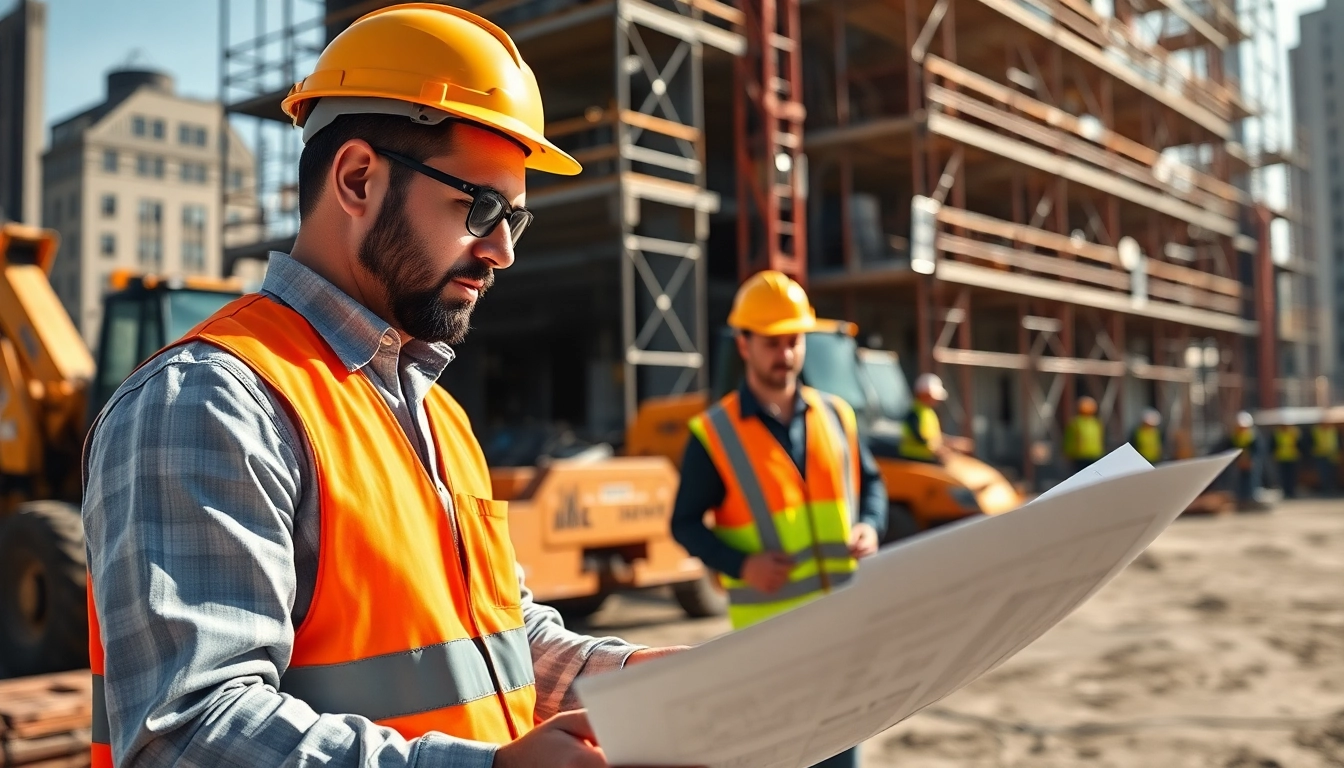
Understanding the Role of a Manhattan Commercial General Contractor
The role of a Manhattan Commercial General Contractor is pivotal in the construction industry, particularly in the bustling landscape of Manhattan, where the synergy of design, architecture, and construction needs to be meticulously balanced. These professionals oversee a wide array of construction projects, ensuring that every facet—from initial planning to the final inspection—is handled with precision and care. Whether you are looking to develop a new office building, renovate an existing structure, or undertake a large-scale industrial project, understanding the scope of work performed by a Manhattan Commercial General Contractor is essential.
What Does a Manhattan Commercial General Contractor Do?
At its core, the primary duty of a Manhattan Commercial General Contractor is to manage the entire construction process. This includes the following key responsibilities:
- Project Coordination: They coordinate all phases of construction, including working with architects, engineers, and skilled tradespeople.
- Budget Management: Managing the financial aspects of a project, including ensuring adherence to budgets and timelines.
- Quality Control: Ensuring that the work meets all quality standards and adheres to local building codes.
- Safety Oversight: Implementing and maintaining safety protocols to protect workers on site.
Key Responsibilities and Services
Beyond mere oversight, general contractors in Manhattan offer a broad range of services that include:
- Pre-construction Services: This entails project planning, budgeting, and scheduling to facilitate smooth execution.
- Construction Management: Overseeing every aspect of construction activities, including subcontractor management.
- Post-construction Services: Handling project closeout procedures and maintenance protocols.
Benefits of Hiring Local Expertise
Hiring a local general contractor brings several advantages. They possess in-depth knowledge of Manhattan’s unique building codes, environmental regulations, and historical preservation laws. This local expertise translates to smoother project execution, as they are adept at navigating the specific challenges posed by the area. Moreover, local contractors often have established relationships with suppliers and subcontractors, leading to more competitive pricing and efficient project timelines.
Choosing the Right Manhattan Commercial General Contractor
The selection of the right Manhattan Commercial General Contractor can profoundly impact the success of your project. A concrete strategy for evaluating potential contractors can streamline this process.
Essential Criteria for Selection
When considering different contractors, focus on the following criteria:
- Experience: Check for years in business, past project types, and familiarity with similar projects.
- Licensing and Insurance: Ensure all contractors are fully licensed and have the necessary insurance to cover potential liabilities.
- Reputation: Research online reviews, testimonials, and case studies to gauge the contractor’s performance history.
Questions to Ask Potential Contractors
Preparing a list of questions to ask prospective contractors can provide clarity on their capabilities:
- What is your project management process?
- Can you provide references or examples of previous work?
- How do you handle unexpected issues that arise during construction?
Evaluating Experience and Portfolio
Reviewing a contractor’s portfolio helps you understand their style and competence. Look for quality work that aligns with your vision and specific needs. Evaluating projects of similar scale and scope will provide insights into their potential performance on your jobsite.
Common Challenges in Construction and How to Overcome Them
The construction landscape in Manhattan can be fraught with challenges often unique to urban settings. Understanding these challenges and how to mitigate them is crucial for project success.
Managing Budget Constraints
Budget overruns can be particularly common in the construction industry. To manage this risk, develop a clear budget from the outset. Include contingencies for unforeseen complications and maintain open communication with your contractor to adjust as necessary.
Addressing Scheduling Conflicts
Time is often of the essence in construction projects, especially in metropolitan areas. Clear timelines should be established and adhered to, with built-in flexibility for any potential delays. Having a contractor with strong project management skills can address conflicts effectively.
Dealing with Regulatory Requirements
New York City has stringent building codes and regulations. A knowledgeable contractor will ensure that all permits and regulatory requirements are met efficiently, avoiding costly stoppages. They are familiar with the necessary paperwork, helping streamline this complex process.
Best Practices for Effective Project Management
Effective project management is crucial for the seamless execution of construction projects. This dimension involves not just planning, but also coordinating efforts among various stakeholders and ensuring transparency throughout the process.
Communication Strategies with Your Contractor
Setting clear communication protocols from day one will help manage expectations and foster a collaborative environment. Regular updates and meetings should be held to discuss progress, challenges, and adjustments.
Using Technology for Better Project Oversight
Embrace technology for project management and collaboration. Tools such as project management software can streamline communication and documentation, leading to enhanced workflow and accountability.
Ensuring Safety and Compliance on the Job Site
Construction safety should always be a priority. Employing rigorous safety protocols and regular training for workers will minimize accidents and ensure compliance with OSHA regulations. An experienced contractor will have a keen focus on safety and can provide resources and training to keep everyone secure.
Measuring Success in Your Construction Projects
Understanding how to measure the success of your construction project is essential to evaluate performance and improve future endeavors. Clear metrics should be established from the outset.
Key Performance Indicators for Contractors
Analyzing Key Performance Indicators (KPIs) such as project completion time, budget adherence, quality of work, and safety records can provide insights into contractor efficiency and overall project success.
Post-Project Evaluation
A thorough post-project evaluation should be conducted to review what went well and where improvements could be made. Gathering feedback from all project stakeholders—including clients, contractors, and subcontractors—will provide valuable insights for future projects.
Long-Term Relationships with Manhattan Commercial General Contractor
Building a long-term relationship with a reliable Manhattan Commercial General Contractor can drive future business and collaboration. Regular communication, shared values, and trust will lead to consistent quality and smooth execution in future construction adventures.